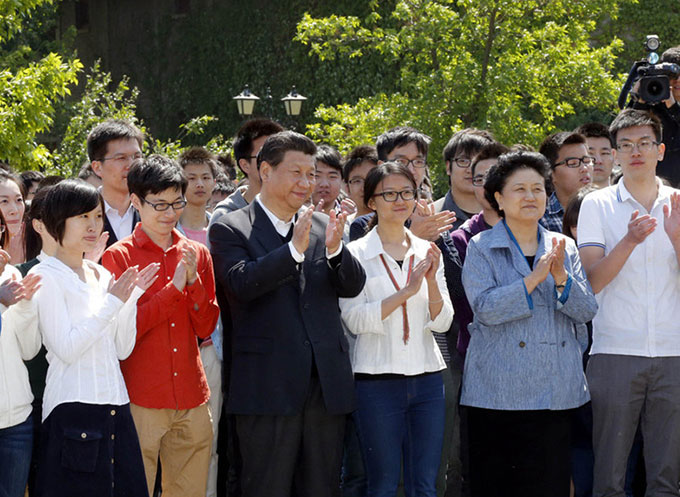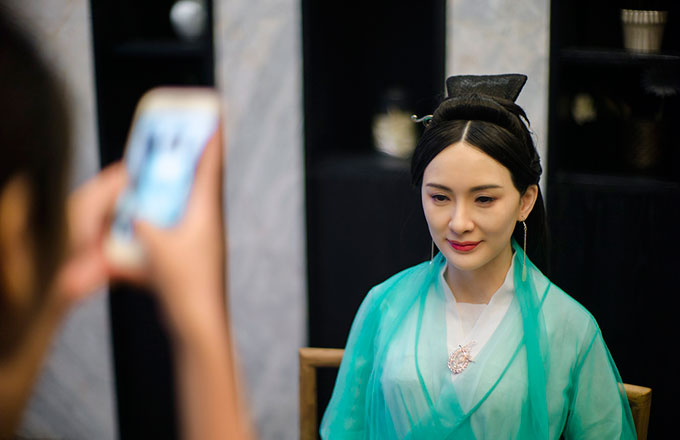Greater choice as private sector gives healthcare a shot in the arm
Services and nursing homes will get financial injection after State Council approves measures
People will enjoy a greater variety of healthcare services and have more choice in nursing homes, as the country is encouraging enhanced private investment in the sector as part of supply-side economic reform.
The State Council's executive meeting on Wednesday, chaired by Premier Li Keqiang, decided on a slew of measures to remove unnecessary institutional barriers in medical and healthcare services to boost the sector's growth.
According to a statement released after the meeting, China's National Development and Reform Commission will introduce more streamlined approval procedures across different departments for the establishment of private healthcare and elderly care institutions. The meeting also urged related departments to work out solid measures to overcome limitations and speed up development of health services.
Li stressed that the health service industry is an important part of China's supply side reform, and is also of great concern for people.
"China still has immense market potential and demand for medical and health services," Li said at the meeting. "We should take concrete measures to boost development in the sector in the face of international competition."
The meeting called for the establishment of long-term, comprehensive guidelines to develop the healthcare industry with a combination of care for the elderly, tourism, sports and the internet.
It also called for more simple, streamlined approval procedures and administration for socially invested healthcare services as well as emerging types of healthcare institutions. Personnel training in healthcare and rehabilitation will be further enhanced, the meeting also decided, and policy incentives will be given to the invention and research into innovation of medical and rehabilitation equipment.
Social investment in medical and health services has surged since 2013, as well as the burgeoning demand that came with the country's aging population and improvements in standards of living.
Private medical and healthcare institutions now account for 45 percent of overall healthcare organizations across the country, the meeting said, and the past several years has seen rapid development in rehabilitation services as well as healthcare through Traditional Chinese Medicine.
In 2016, health expenses in China totaled 4.63 trillion yuan ($707 billion) accounting for 6.2 percent of GDP, a number still much lower than that of developed countries.
The meeting also called for tax incentives for medical and healthcare industries.
Figures from the National Health and Family Planning Commission show that by April, China had more than 444,000 privately invested medical and healthcare institutions, and the number has doubled since 2011.
Xu Weijun, who runs a private nursing home for the elderly in South China's Guangdong province, feels greatly encouraged by the new policy, and is encouraged to expand his own business.
"China will definitely have a large demand in private healthcare services as the country's aging population is increasing and people's traditional ideas about the elderly are also changing," he said. "The key is more policy incentives for private investors, and less administrative hurdles."
"Personally, I believe it is important to combine it with tourism and sports, and other related elements, to create a more comprehensive system for the healthcare industry, so that elderly people not only always get good medical treatment, but also a pleasant and stress-free life," Xu added.
Having worked in the private healthcare sector for more than a decade, Xu also pointed out some problems facing the industry. For example, most nursing homes are required to have their own medical clinic, but these clinics only provide treatment to the nursing homes' residents and do not treat patients from nearby communities.
"For the clinics within nursing homes, they should also be open to people outside the nursing homes, because this way they will improve their medical techniques and services," Xu said. "Also, when a clinic helps local communities, it will also attract well-developed general practitioners."
He also said that the government needs to give guidance and support on how social investment can increase in the sector.


























